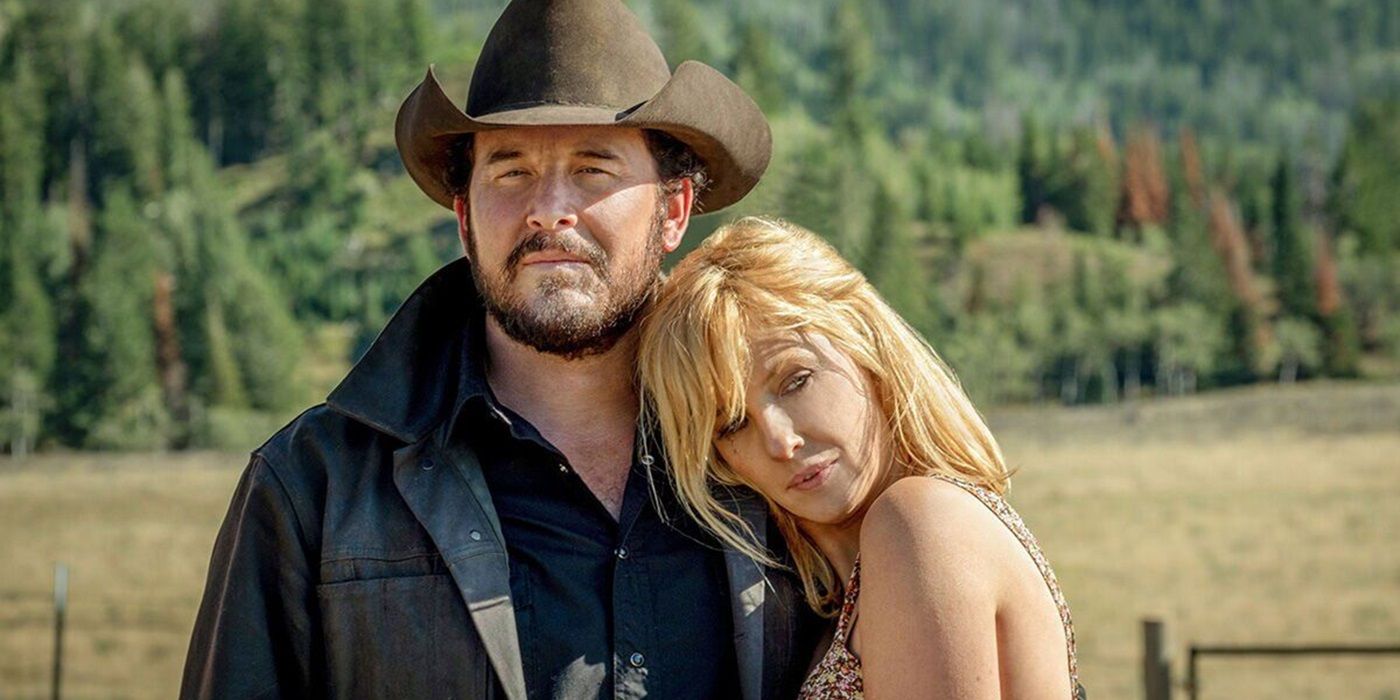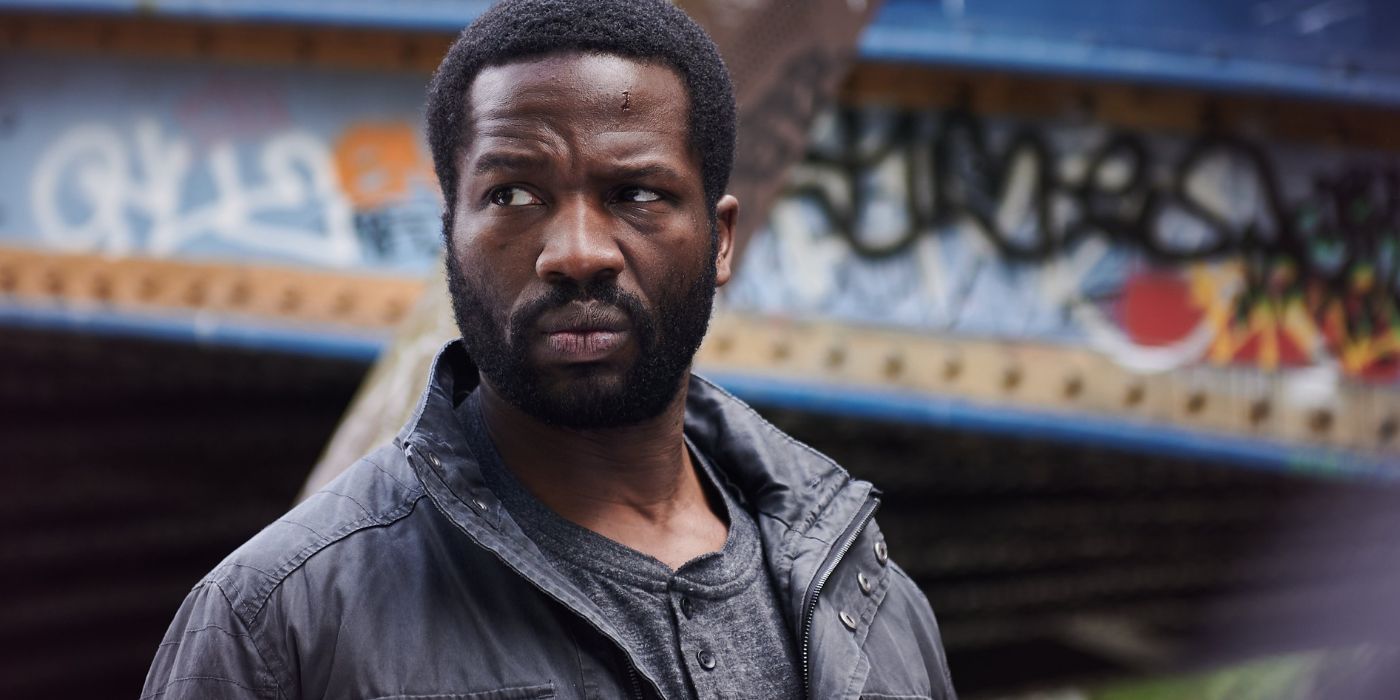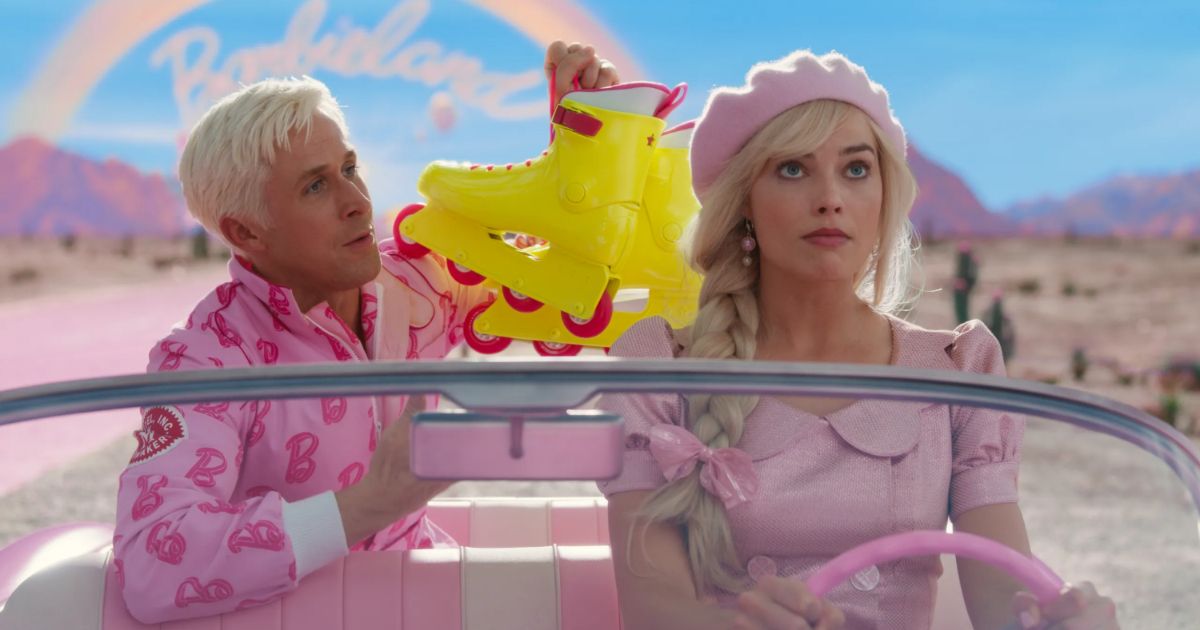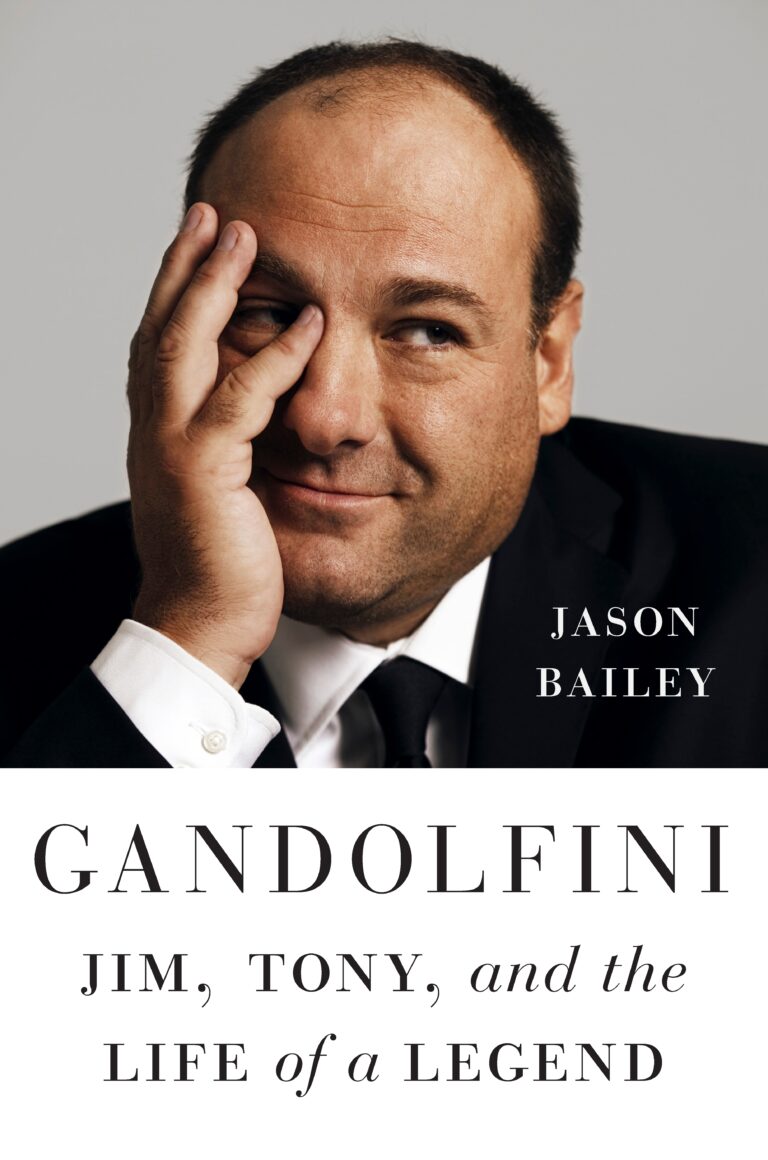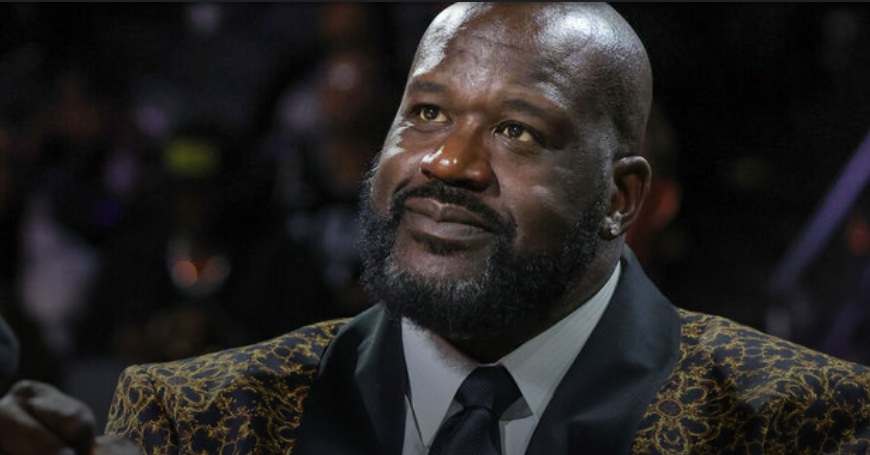Paul Andrew Willams’ “Bull,” a world premiere from this year’s Fantasia, is not just about a guy who is particularly monstrous and violent in his pursuit for blood-gushing revenge. The movie itself is snarling, cold as ice, and fully set in its ways. Watching it is the experience of understanding an entire head space, of losing oneself in darkness and removing oneself from the usual thrill one gets from watching acts of vengeance. In “Bull,” revenge is a horrific, pitch-black expression; like the greatest Clint Eastwood Westerns discuss, the hate that is behind revenge is not something we should be desensitized to. Williams’ script takes this idea as far as it can go. That means it goes off the rails, and also that it’s exactly meant to be that way.
Neil Maskell stars as Bull. He does not appear to be a killer, but more like the bearded guy who kicks off open mic night with an Oasis cover. It’s great casting by appearance alone, and makes him all the more shocking when he does pounce, when his knives comes out abrasive fashion. We learn he’s the heavy of his group of baddies, he’s the guy who walks into the room and takes things to an extreme when his boss, Norm, wants to make a point to his “clients.” “Bull” does a great job in keeping the violence is horrific and unsettling, ruthless. The movie even starts with slasher logic, as if we were watching a Jason Voorhees kill people with the same indifference. When we first see Bull kill, it’s a slow walk to an open garage and some shots—Neeson-type stuff, just like the opera music that bookends the music. The next time, it’s a man who is duct-taped to a chair, and while a woman pleads with Bull, he mechanically stabs bound man in the gut and throat. It shows the true horror of revenge, also like Jeremy Saulnier films do, but with even more of a serial killer angle. Pairing that notion with intimate violence, of “family” members putting power moves over each other by showing up at each other’s houses, is discomfiting and it keeps you watching.
Why is Bull so unflappably pissed? The story balances his current revenge plot with a history of marriage, death, and his son, and while it’s a little tricky to put together at first, the ease of going back and forth becomes a part of its collective state of mind, one that’s drenched in brutality, while showing the frailty of family. Norm, it turns out, is Bull’s father-in-law, portrayed like an army tank by David Hayman, who is one side frightening, the other side grandfatherly. Meanwhile in the present timeline, images briefly flash back to a trailer being lit on fire. Throughout the story, we learn who is in that trailer, and what happened the night it was torched. The true story is even more bizarre and worse than we think, and in writer/director Williams’ confidence he builds our understanding of it parallel to our modern-time discomfort with what Bull will do next.
Williams has made an incredibly stirring, chilling study of violence that is more unhinged than most, so much that while watching it, “Bull” seems to go completely out of control. Maskell’s performance, for one, becomes even more cartoonish and villainous, his eyes bulging, his laughs more menacing. In these parts, it seems like the movie has lost focus of the coldness it originally established. Not so. “Bull” is one of those movies that plays even better when you revisit its gruesome parts in your memory, as they become even more expressive when you know the whole story. The movie is also highly amused with itself, and places pivotal being-held-at-knife-point scenes on amusement park rides, which becomes one of its freakier aspects. It’s all part of how “Bull” always keeps you disoriented, never taking it easy, and locking you in. Even when its final shots present you with an explanation, it doesn’t care if you buy it all or not. That only makes me admire it more.
Fantasia has a family film section called “My First Fantasia,” related to animated movies for families and viewers who are over four years old. “Voice of Silence” would be a great fit for the occasion, even though it probably has more head-bashings and mob-related violence than anything else in that section. But the exceptionally daring “Voice of Silence” is not about the darkness, but its bits of conscience between them. It’s a mighty sweet film of a makeshift family, even as it tells the story of two cleaners for the mob who take care of a kidnapped girl.
When the mob needs someone to hang a captured target, they call on two egg merchants, Tae-in and Chang-bok. They’re like a father and son duo, and are good at their jobs and seem like very pleasant guys. They also know when to turn away as the torture and killing commences, and how to bury the body after. They’re unassuming accomplices, and otherwise live peaceful, nonviolent lives. Tae-in (Yoo Ah-in of “#Alive” giving a compelling, full-bodied performance) is non-speaking and lives out in the countryside with his young sister. Chang-bok talks of faith, and gives Tae-in tapes that will help him speak.
They are powerless against their violent employers, so they reluctantly accept the gig of watching over adorable Cho-hee (Seung-ah Moon), a kidnapped girl who has little idea of her current significance. Hong plays with the naïveté and trauma inherent in this idea, but paints a picture of Cho-hee finding herself with a new family, enjoying her time with the sister. She helps them write a ransom note, unaware of what it really means; later on she traces flower pedals around blood droplets when Tae-in and Chang-bok haul off a bloody body. “Voice of Silence” finds a way for these moments to be endearing among the movie’s knowingly near-sighted storytelling. The film is all about the moments, like scenes where they sit around Tae-in’s shack, as a gorgeous pink watercolor sky surrounds them. These two men have a conscience, always, the script wants to make clear. Everything gracefully falls apart when they try to help her get back to her real family in a way that won’t get them killed by their employers.
There are many places in which this movie could have gone wrong, especially with sensitive subjects that all need their space: Tae-in’s inability to speak; the endangerment of children; the fragile stacking in general of such heavy material on top of moments that are played as comically ordinary, if not whimsical. Hong’s original script proves they can all coexist, and that alone makes “Voice of Silence” an impressive feat far more nuanced than Hollywood would ever dare without making it a jokey affair.
Confident subtlety is the lifeblood of this bold and unpredictable movie, in that it doesn’t overplay its lighter moments or its darker ones. Immense desperation is always on the fringe, but Hong is confident, and wholly trusting the audience does not see black and white. It’s more that you leave the film more impressed with its plotting than collectively moved. Hong is playing with numerous ideas, of ordinary criminals, sunny trauma, and everyone having a conscience, but the larger statement seems lost in the daredevil storytelling. Still, it’s the sincere characters that linger, and the loving way they are presented. The movie is always genuine, just like its warming faith in people.
There’s little that’s worthwhile to the miscalculated, manipulative thriller “Baby Money,” which also had its world premiere at the festival. It starts with Danay Garcia’s Minny receiving new information about an eight-month pregnancy. “How am I going to pay for it?” she asks out loud. The camera slowly zooms in on her distraught face, just like with Benny Safdie’s mug in a similar emotional beat at the beginning of the Safdie brothers’ “Good Time,” one of many crime thrillers of desperation that was a clear influence here. But “Baby Money,” directed by Mikhael Bassilli and Luc Walpoth and written by Bassilli and MJ Palo, is not interested in Minny. Instead it’s about her boyfriend Gil (Michael Drayer) getting caught up in a home invasion/robbery that completely backfires while trying to make some money. The cops swarm into the neighborhood. Gil and his partner Tony (Travis Hammer) flee to another nearby suburban abode, this one owned by a nurse named Heidi (Taja V. Simpson), who lives with her cerebral palsy-afflicted son Chris (Vernon Taylor III, who has palsy in real life). Gil and Tony got what they needed from the first house, but need to find a way past the cops before their mysterious pick-up stops.
On a larger scale, “Baby Money” is all about macho nonsense, of two frantic dudes pointing guns at each other, whispering loudly, etc., trying to figure out what they’re going to do next. Yawn. Meanwhile Minny is on the outside, trying to secure a car, and realizing that she can try to finagle one from a guy who recognizes her from her job as an exotic dancer. Yawn. Along with sticking us with two characters it’s very difficult to care about, and then giving Garcia a bland mind-game to play with a horny dude, the movie tries to be edgy with grand displays of violence that are unearned, like two deaths in the opening robbery that create this whole mess. The editing is sharp enough in creating certain moments of discomfort, but the content is all too junky, and not in the grimy way this tale of ugly humanity desires.
The cast, for the most part, does try to put some heart into the dialogue that comes between the frantic crime stuff; a more focused version might have been able to make the violence more of a spark instead of its singular driving element. Instead, “Baby Money” is mostly concerned with its most boring entity, its male characters, who are so predictably violent, jealous, and doomed.
You can view the original article HERE.



